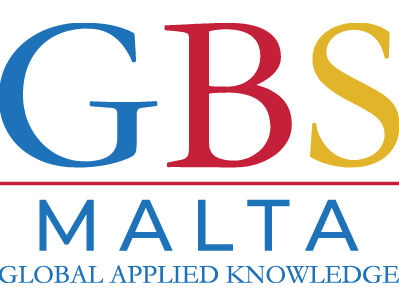Credits needed to earn the degree:
| ECTS Credits | UK Credits |
| 90 ECTS | 180 Credits |
This course includes or offers the following modules:
The purpose of this module is to provide an understanding of the importance of the marketing concept within any organisation. The module outlines both the philosophical underpinning supporting contemporary marketing theory and its application in different organisational contexts. Key marketing tools (segmentation and the marketing mix) are analysed and applied through the context of the management of the marketing process.
The nature of contemporary marketing theory and practice are developed alongside the concept of market orientation. The importance of marketing research, strategic analysis and the alignment with organisational strategy through branding is developed.
The module focuses upon the identification and application of key marketing management tools (segmentation, targeting, positioning,) and their impact on the delineation of markets and key stakeholder groups. Tactical marketing concepts are analysed and evaluated within a relational, services and social marketing conceptualisation.
The discipline of marketing planning is developed around the creation of an integrated strategic framework.
In this module, you will be able to demonstrate the following Graduate Attribute:
Employable: equipped with the skills necessary to flourish in the global workplace, able to work in, and lead, teams;
Internationally networked: studying abroad for part of their programme, or studying alongside students from overseas;
Critical thinkers: able to express their ideas in written and oral form, and possessing information literacy;
Ethically aware: prepared for citizenship in a local, national and global context.
The module will include a mix of tutor input, lectures, case studies, group work and discussion. The style will be interactive and there will be an emphasis on application and critical interpretation. Additional selected readings designed to support learning and understanding will be presented as the module develops.
20 Intended learning outcomes
By successful completion of the module, you will be able to demonstrate:
1 Evaluate and critically assign the importance of marketing and recognise its significance in different sectors and organisations
2 Analyse the principles of strategic marketing and explain how this drives targeting and positioning
3 Analyse and evaluate the relevance of traditional marketing mix components and broad issues relating to them (product, price, distribution, promotion)
4 Analyse and evaluate the importance of relationship, services and social marketing and their practical application
5 Analyse and interpret the various influences and different decision making processes consumers go through in making buying decisions
| Total Contact Hours | 15 Hours |
| Self Study Hours | 130 Hours |
| Total Number of ECTS of this Module/Unit | 7.5 ECTS |
| MQF/EQF Level | Level 4/5/6/7 |
Formative exercises and tasks:
F1. In class discussion and group presentations
Summative assessments:
S1. Individually written report 4,000 word
Weighting
100%
The main aim of this module is to equip students with the knowledge and skills that would be expected from a finance manager responsible for the finance function of a business, in relation to investment, financing, and dividend policy decisions.
Management Accounting builds on the insights about costs and their drivers to provide the competencies needed to analyse, plan and manage costs to support the implementation of the organisation’s strategy in a variety of business context.
In this module, you will be able to demonstrate the following Graduate Attribute:
Internationally networked: studying abroad for part of their programme, or studying alongside students from overseas;
Critical thinkers: able to express their ideas in written and oral form, and possessing information literacy; Ethically aware: prepared for citizenship in a local, national and global context.
The module will include a mix of tutor input, lectures, case studies, group work and discussions. The style will be interactive but there will be an emphasis on the application of key skills, namely the ability to acquire analytical and reporting skills that will be highly valued by their future employers. Where appropriate additional selected readings designed to support learning and understanding will be presented as the module develops. All teaching and learning activities will aim to develop student autonomy, engagement, communication skills, decision making ability and become ethically aware global citizens.
20 Intended learning outcomes
By successful completion of the module, you will be able to demonstrate:
1 Discuss the role and purpose of the financial management function
2 Discuss, evaluate, select and apply working capital management techniques
3 Identify and evaluate alternative sources of business finance and carry out effective investment appraisal
4 Explain and critically apply cost accounting techniques
5 Prepare budgets for planning and control
6 Compare actual costs with standard costs and analyze any variances
| Total Contact Hours | 15 Hours |
| Self Study Hours | 130 Hours |
| Total Number of ECTS of this Module/Unit | 7.5 ECTS |
| MQF/EQF Level | Level 4/5/6/7 |
Formative exercises and tasks:
F1. Case Study analysis
F2. Scenario analysis
F3. Group work
Summative assessments:
S1. Exam (2 hrs)
Weighting%
100%
This module explores the contribution of entrepreneurship and of individual entrepreneurs to future organisational growth and sustainability. It defines the different role of the entrepreneur in different organisational contexts – small, medium and international entrepreneurs – and identifies the necessary requirements associated with the creation and management of an entrepreneurial culture.
In this module, you will be able to demonstrate the following Graduate Attribute:
Employable: equipped with the skills necessary to flourish in the global workplace, able to work in, and lead, teams;
Digitally literate: able to work at the interface of creativity and technology; Creative thinkers, doers and makers.
The module will include a mix of tutor input, lectures, case studies, group work and discussion. The style will be interactive and there will be an emphasis on application and critical interpretation. Additional selected readings designed to support learning and understanding will be presented as the module develops.
2 Intended learning outcomes How assessed 0
By successful completion of the module, you will be able to demonstrate 1 Analyse, evaluate and clarify what entrepreneurship S1 means and how it is managed in small, national and international organisations, including the importance of the entrepreneur and entrepreneurship in modern societies 58 / 104
2 Critically assess the framework for evaluating new S1 ideas, the role of innovation and the linkage with creativity, invention and opportunity in developing personal and organisational entrepreneurship
3 Analyse and evaluate what constitutes an S1 entrepreneurial culture and how it might be developed in self and in organisations
4 Recognise the impact of globalisation and S1 internationalisation on entrepreneurship
5 Analyse and apply the key requirements for effective S1 ‘start-up’ and growth.
| Total Contact Hours | 15 Hours |
| Self Study Hours | 130 Hours |
| Total Number of ECTS of this Module/Unit | 7.5 ECTS |
| MQF/EQF Level | Level 4/5/6/7 |
Formative exercises and tasks:
F1. Case study analysis, analysis of personal competences, group presentation
Summative assessments:
S1. Word report 4,000
Weighting%
100%
This module allows students to develop an understanding of sustainability-related challenges facing society, organisations, and the economy to explore the implications of these for contemporary practices. Students will engage in debates concerning the relationship between business and issues such as climate change; the environment; humankind’s relationship to nature; inequality; social problems; and the challenge of sustainability in capitalist economies that privilege economic growth.
This module is taught by a mixture of tutor-led seminars, lectures and practical workshops with sector practitioners, student-led presentations and discussion, and the use of case studies and work-based learning scenarios.
20 Intended learning outcomes
By successful completion of the module, you will be able to demonstrate:
1 A comprehensive understanding of conventional economic, business and management practice and orthodoxies in relation to debates about managing sustainability;
2 The ability to critically evaluate the goals, governance, policy and regulation for the future of sustainability, climate, environment and society;
3 A theoretical and practical understanding of environmental and socio-economic injustice, inequalities and ethics and the links with ongoing business / management practice;
4 The ability to make an informed review of best practice in relation to sustainable business functions, leadership and management;
5 An ability to critically assess the concept of sustainability and apply in a sectoral context.
| Total Contact Hours | 15 Hours |
| Self Study Hours | 130 Hours |
| Total Number of ECTS of this Module/Unit | 7.5 ECTS |
| MQF/EQF Level | Level 4/5/6/7 |
Formative exercises and tasks:
F1. Case study analysis, analysis of personal competences, group presentation
Summative assessments:
S1. Word report 4,000
Weighting%
100%
Whatever their specialism, managers increasingly need to be managers of people and lead teams. It is also increasingly being recognised that organisational performance can be enhanced, and competitive advantage gained through strategic management and the development of people.
In this module students will explore the importance of specific HR practices to enhance employee engagement as well as explore how people learn to gain a better understanding of what makes a good leader. They will be applying theoretical concepts and frameworks to a variety of organisational contexts that interest them.
The module will include a mix of tutor input, lectures, case studies, group work and discussion. The style will be interactive and there will be an emphasis on application and critical interpretation. Additional selected readings designed to support learning and understanding will be presented as the module develops.
20 Intended learning outcomes How assessed
By successful completion of the module, you will be able to demonstrate:
1 Evaluate the effectiveness of specific HR S1 practices to enhance employee engagement
2 Critically consider how people learn and S1 explore recent developments in learning and developments within organisations
3 Explore the complex role of line manager in S1 the management of people
4 Synthetize the principles behind effective S1 leadership and reflect on their own leadership styles
5 Evaluate relevant factors in the design of S1 work including the importance of teams for effective organisational performance
| Total Contact Hours | 15 Hours |
| Self Study Hours | 130 Hours |
| Total Number of ECTS of this Module/Unit | 7.5 ECTS |
| MQF/EQF Level | Level 4/5/6/7 |
Formative exercises and tasks:
F1. Group presentation – proposals for the summative report
F2. Class based exercises, with case studies, discussions and opportunities to apply theory to real organisations
Summative assessments:
S1. Report (4,000 words)
Weighting
100%
The main aim of this module is to help the student to apply relevant knowledge, and skills, and exercise professional judgement in carrying out the role of the accountant relating to governance, internal control, compliance and the management of risk within an organization, in the context of an overall ethical framework. This module will allow students to acquire essential and core technical skills and knowledge through the introduction of ethics, corporate governance and risk will have been introduced in a subject-specific context such as identification and evaluation of risk, responses to strategic risk and internal controls.
The module will include a mix of tutor input, lectures, case studies, group work and discussion. The style will be interactive and there will be an emphasis on application and critical The module will include a mix of tutor input, lectures, case studies, group work and discussions. The style will be interactive but there will be an emphasis on the application of key skills, namely the ability to acquire analytical and reporting skills that will be highly valued by their future employers. Where appropriate, additional selected readings designed to support learning and understanding will be presented as the module develops. All teaching and learning activities will aim to develop ethically aware, innovative and creative global citizens with excellent communication skills and decision making ability.
20 Intended learning outcomes How asse By successful completion of the module, you will be able to demonstrate: ssed
1 Critically explore and define governance and explain its function in the effective S1 management and control of organisations and of the resources for which they are accountable
2 Evaluate the Professional Accountant’s role in internal control, review and complianceS1
3 Explain the complex role of the accountant in identifying and assessing risk S1 70 / 104
4 Explain and evaluate the role of the accountant in controlling and mitigating risk S1
5 Demonstrate the application of professional values and judgement through an ethicalS1 framework that is in the best interests of society and the profession, in compliance with relevant professional codes, laws and regulations
| Total Contact Hours | 15 Hours |
| Self Study Hours | 130 Hours |
| Total Number of ECTS of this Module/Unit | 7.5 ECTS |
| MQF/EQF Level | Level 4/5/6/7 |
Formative exercises and tasks:
F1. Case Study analysis
F2. Scenario analysis
F3. Group work
Summative assessments: Weig
hting% S1. Exam (2 hours)
100
Digital marketing is an increasingly powerful tool for growing businesses and increasing revenue and market presence. We assume that Millennials and Generation Z have social media and digital marketing channels/apps/etc. woven through their lives. But this does not automatically correlate to organisations and businesses understanding how to successfully navigate and make the most of the rapidly expanding and complex opportunities for digital marketing.
By successful completion of the module, you will be able to demonstrate
How assessed
1 A comprehensive understanding of digital platforms and new engagement methods available for marketing and brand management across a range of sectors/businesses;
2 A theoretical and practical understanding of the key stages in the development of digital marketing campaigns and broader digital marketing strategies, underpinned with appropriate marketing and brand management models, scholarship and/or sector best practice;
3 A comprehensive understanding of the complex and interconnected social, ethical, political, and economic contexts of implementing digital marketing strategies across different business sectors, and at local, regional, nationaland international levels;
4 The ability to critically evaluate digital marketing campaign and strategies across different business sectors
| Total Contact Hours | 15 Hours |
| Self Study Hours | 130 Hours |
| Total Number of ECTS of this Module/Unit | 7.5 ECTS |
| MQF/EQF Level | Level 4/5/6/7 |
Formative exercises and tasks:
F1. Practical in-class short assignments
F2. Informal short presentations in class
Summative assessments:
S1. Project (equiv. 4,000 words)
Weighting%
100%
This module allows students to develop an understanding of sustainability-related challenges facing society, organisations, and the economy to explore the implications of these for contemporary practices. Students will engage in debates concerning the relationship between business and issues such as climate change; the environment; humankind’s relationship to nature; inequality; social problems; and the challenge of sustainability in capitalist economies that privilege economic growth.
By successful completion of the module, you will be able to demonstrate
1 A conceptual understanding of, and ability to critically evaluate current research, advanced scholarship and methodologies appropriate to your discipline area.
2 A comprehensive understanding of techniques applicable to your own research and scholarship and an ability to devise a viable research project.
3 Your ability to clearly structure and present a coherent argument justifying a research project.
4 Your ability to develop and comprehensively plan a major research project.
| Total Contact Hours | 15 Hours |
| Self Study Hours | 130 Hours |
| Total Number of ECTS of this Module/Unit | 7.5 ECTS |
| MQF/EQF Level | Level 4/5/6/7 |
Formative exercises and tasks:
F1. Class activity (e.g. presentations, data collection practices, debates) and discussion
F2. Feedback on research ideas
Summative assessments
S1. Research project proposal (4,000 words)
Weighting%
100%
The dissertation/consultancy project is an essential requirement of the MA in Business and Management. It offers students the opportunity to demonstrate the knowledge and skills they have gained across their taught modules in an extended scholarly research project that justifies the ‘Master’s’ award.
You will be expected, through self-directed learning, to develop your own repository of academic and practitioner related sources and references to support the development of your thinking around the key concepts introduced in the module. Guidance will be given in personal supervision. You should aim to blend a mix of readings and references between general theoretical and practitioner approaches and those more applicable to your own professional situation and self-development needs.
20 Intended learning outcomes How assessed
By successful completion of the module, you will be able to demonstrate that you:
1 Thoroughly understand your chosen area and topic of investigation withinS1, S2 the field of Accounting & Finance
2 Develop a clear and substantiated research proposal poster associatedS1 with your chosen topic of investigation
3 Research, evaluate and synthesise existing literature S1, S2 84 / 104
4 Critically select research methods appropriate to the nature of the S1, S2 problem being investigated
5 Design, undertake and sustain an appropriate investigation S2
6 Collate, analyse and interpret the findings of such investigations S2
7 Defend your research by handing in a well-structured and well-written S2 coursework
| Total Contact Hours | 15 Hours |
| Self Study Hours | 130 Hours |
| Total Number of ECTS of this Module/Unit | 7.5 ECTS |
| MQF/EQF Level | Level 4/5/6/7 |
Formative exercises and tasks:
F1. Discussions between you and your supervisor with the feedback provided
Summative assessments:
S1. Research proposal poster (equiv. to 1,500 words)
S2. 14,500 word dissertation/consultancy project report
Weighting%
10%
90%
All our programmes are offered in English language and all module credits are UK.



